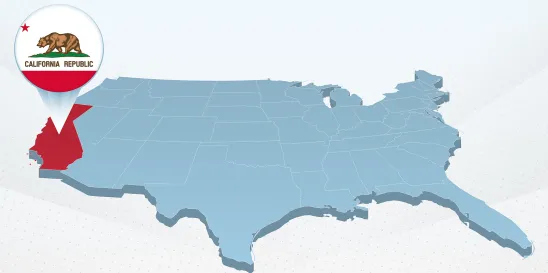On October 14, 2023, California’s active legislative year came to an end, leaving numerous employment law updates in its wake. This year, Governor Gavin Newsom has signed novel laws that create new rights for employees (and requirements for employers) while also amending some current laws, thereby changing existing employer obligations. Here, we summarize the laws expected to have the greatest impact on California employers in 2024.
Paid Sick Leave Increases (SB 616)
As described in greater detail in a separate blog post, effective January 1, 2024, California employers are required to provide five days (or forty hours) of paid sick leave under the Healthy Workplaces, Healthy Families Act. This is an increase from three days (or twenty-four hours), which was the employer obligation prior to the amendment.
Reproductive Loss Leave (SB 848)
Under existing law (the California Fair Employment and Housing Act (“FEHA”)), employers must grant a request by any employee to take up to five (5) days of bereavement leave upon the death of a family member.
Effective January 1, 2024, employers must also grant a request by an eligible employee to take up to five (5) days of reproductive loss leave following a reproductive loss event. A “reproductive loss event” is defined as: “the day or, for a multiple-day event, the final day of a failed adoption, failed surrogacy, miscarriage, stillbirth or an unsuccessful assisted reproduction.” Under the new law, in the absence of an existing policy, the reproductive loss leave may be unpaid. However, employees may use certain other leave balances otherwise available to the employee, including accrued and available paid sick leave. Generally, such leave must be taken within 3 months of the event. Further, if an employee experiences more than one reproductive loss event within a 12-month period, the employer is not obligated to grant a total amount of reproductive loss leave time in excess of 20 days within a 12-month period.
In addition, the new law prohibits retaliation based on the individual’s exercise of the right to reproductive loss leave or the individual’s testimony as to reproductive loss leave. Finally, any information provided to the employer relating to the need for reproductive loss leave shall be maintained as confidential and shall not be disclosed except to internal personnel or counsel, as necessary or as required by law.
Workplace Violence Prevention Plans (SB 553)
By July 1, 2024, nearly all California employers are required to design, implement, and maintain a workplace violence prevention plan (“WVPP”). In addition, the new law requires employers to maintain a violent incident log, as well as provide yearly training to employees on how to identify and avoid workplace violence.
The WVPP will be structured like an Injury & Illness Prevention Program (“IIPP”), as employers must designate the person responsible for implementing the program, identify and correct hazards through periodic inspections, maintain records of incidents and train employees on hazards. In addition, though, the WVPP must include “[e]ffective procedures to obtain the active involvement of employees and authorized employee representatives in developing and implementing the plan, including, but not limited to, through their participation in identifying, evaluating and correcting workplace violence hazards, in designing and implementing training and in reporting and investigating workplace violence incidents.”
Further, under the new law, employers must provide employees with initial training when the WVPP is established and continue conducting annual trainings thereafter. The training must cover the contents of the WVPP, the law’s definitions and requirements, ways to report incidents and concerns, strategies to avoid physical harm and ways employees can participate in the WVPP’s development and implementation.
The law also requires employers to maintain various records, including a separate violent incident log, training records and investigation records. Under the new law, employers must ensure that all workplace violence incidents involving any employee are reported, investigated and recorded. Finally, Cal/OSHA will propose its own general industry workplace violence regulations by December 31, 2025, and will adopt such standards no later than December 31, 2026.
Cannabis-Use Protections (SB 700)
The California FEHA prohibits various forms of employment discrimination and empowers the Civil Rights Department (formerly known as the Department of Fair Employment and Housing) to investigate and prosecute complaints alleging unlawful practices.
Effective January 1, 2024, it is generally unlawful for an employer to discriminate against a person in hiring, termination or any term or condition of employment, or otherwise penalize a person because of the person’s use of cannabis off the job and away from the workplace or based on the results of an employer-required drug screening test that has found the person to have non-psychoactive cannabis metabolites in their hair, blood, urine or other bodily fluids.
However, employees are not allowed to possess or use marijuana on the job or otherwise interfere with the rights of an employer to maintain a drug-free and alcohol-free workplace, and an employer can still refuse to hire an applicant based on a scientifically valid pre-employment drug screening conducted through methods that do not screen for non-psychoactive cannabis metabolites.
Notably, the new law does not preempt state or federal laws requiring applicants or employees to be tested for controlled substances, including laws and regulations requiring applicants or employees to be tested, or the manner in which they are tested, as a condition of employment, receiving federal funding or federal licensing-related benefits, or entering into a federal contract. In addition, the new law does not apply to applicants or employees hired for positions that require a federal government background investigation or security clearance in accordance with regulations issued by the United States Department of Defense pursuant to Part 117 of Title 32 of the Code of Federal Regulations, or equivalent regulations applicable to other agencies.
Unenforceable and Void Noncompete Agreements (SB 699 and AB 1076)
SB 699
Under existing California law, noncompete agreements are generally unenforceable. Specifically, California Business and Professions Code section 16600 voids contractual provisions by which a person is restrained from engaging in a lawful profession, trade or business of any kind, except as otherwise provided. This Fall, Governor Newsom signed two laws that expand employee protections and employer obligations regarding noncompete agreements, effective January 1, 2024.
The first new law, SB 699, signed on September 1, 2023 establishes that any contract that is void under the law described above is unenforceable regardless of where and when the contract was signed. Accordingly, employers (or former employers) are prohibited from attempting to enforce a contract that is void even if the contract was signed, and the employment was maintained, outside of California. In addition, the new law prohibits an employer from entering into a contract with an employee or prospective employee that includes a provision that is void under the law described above. Under the new law, an employee, former employee or prospective employee may bring an action to enforce that law for injunctive relief or the recovery of actual damages, or both, and a prevailing employee, former employee or prospective employee is entitled to recover reasonable attorney’s fees and costs.
To avoid the potentially costly consequences of violation, employers should review their employment contracts to make sure they comply with this new law. Employers should also realize that they likely will not be able to rely on noncompete agreements signed by employees when they were working in another state if the employee begins working in California (even if the noncompete agreement was valid in the state of origin). Finally, employers should ensure they are not relying on noncompete agreements as the only method of protecting confidential and trade secret information, as they will be left vulnerable when their noncompete is inevitably deemed unenforceable under California law.
AB 1076
The second new law, AB 1076, signed on October 13, 2023, codifies existing case law (Edwards v. Arthur Andersen LLP (2008) 44 Cal.4th 937), by specifying that the statutory provision voiding noncompete contracts is to be broadly construed to void the application of any noncompete agreement in an employment context, or any noncompete clause in an employment contract, no matter how narrowly tailored, that does not satisfy specified exceptions. The new law makes these provisions applicable to contracts where the person being restrained is not a party to the contract. Further, the new law makes it unlawful to include a noncompete clause in an employment contract, or to require an employee to enter a noncompete agreement, that does not satisfy specified exceptions. In addition, under this new law, employers must provide written notice by February 14, 2024 to all current and former employees who were employed after January 1, 2022 that any post-employment noncompete clause or agreement with the employer is void. A violation of these provisions constitutes an act of unfair competition and could subject a violating employer to civil penalties.
In order to ensure compliance with this new law, employers should review their agreements with current and former California employees to identify potentially non-compliant agreements (including employees who signed a valid noncompete agreement when they lived in another state) and start preparing individualized, written notices to be sent to the last known address and email address of each covered employee by the February 14, 2024 deadline.
How the nuances of these new laws will be interpreted by the courts remains to be seen, and employers should consult with counsel on how they may impact their business practices.
Other Updates
In addition to the laws discussed above, some new California laws apply specifically to certain industries. For example, AB 1228 creates a new version of the Fast Food Council and implements a new minimum wage rate for fast food restaurant employees ($20 per hour), while SB 525 establishes multiple separate minimum wage schedules for covered healthcare employees, which depend on the nature of the employer. In addition, AB 647 revises recall rights for grocery workers when there is a change of control in a grocery establishment. Further, SB 723, which impacts hospitality and business service industries, redefines the term “laid-off employee,” removes references to COVID-19, and provides that if an employee’s layoff is due to “a public health directive, government shutdown order, lack of business, a reduction in force or other economic, nondisciplinary reason,” that employee is entitled to be given the opportunity for reemployment in a position in which they qualify.





 />i
/>i
